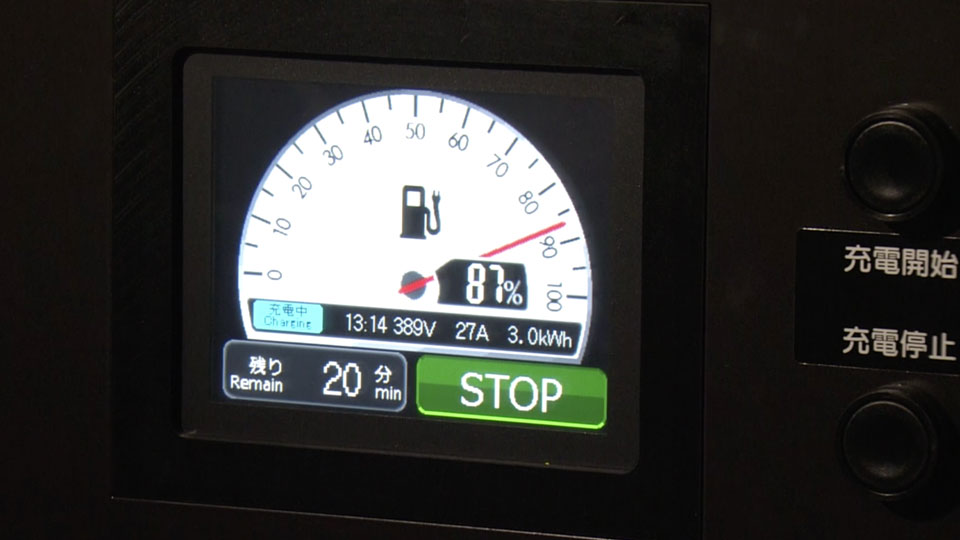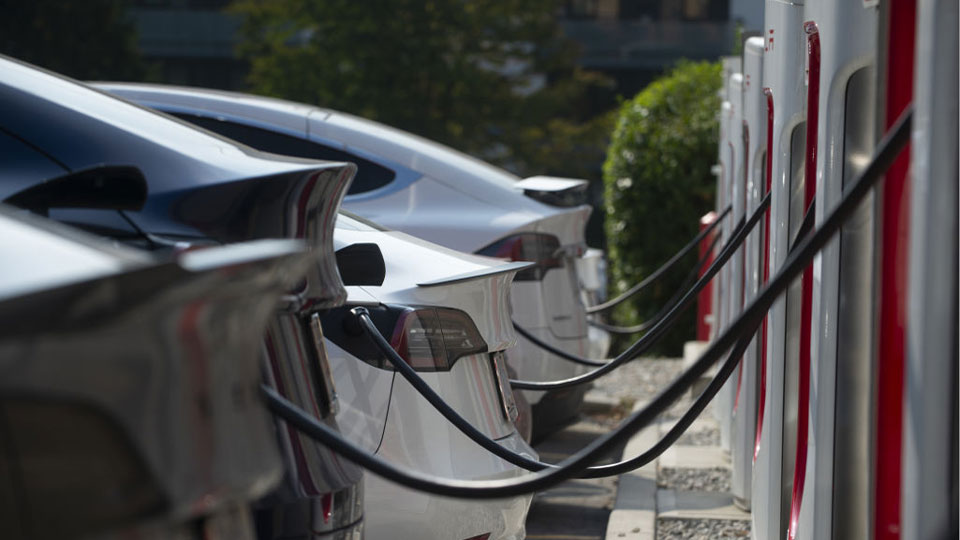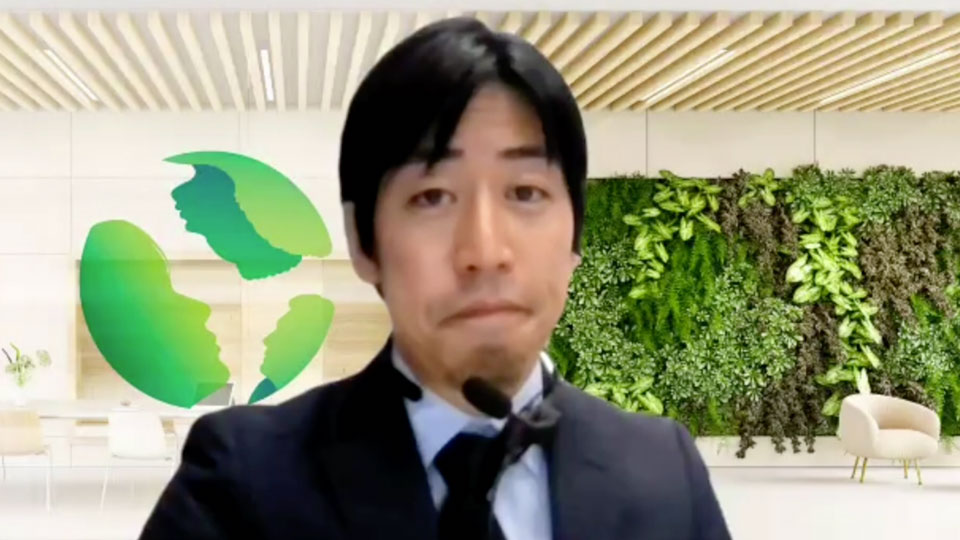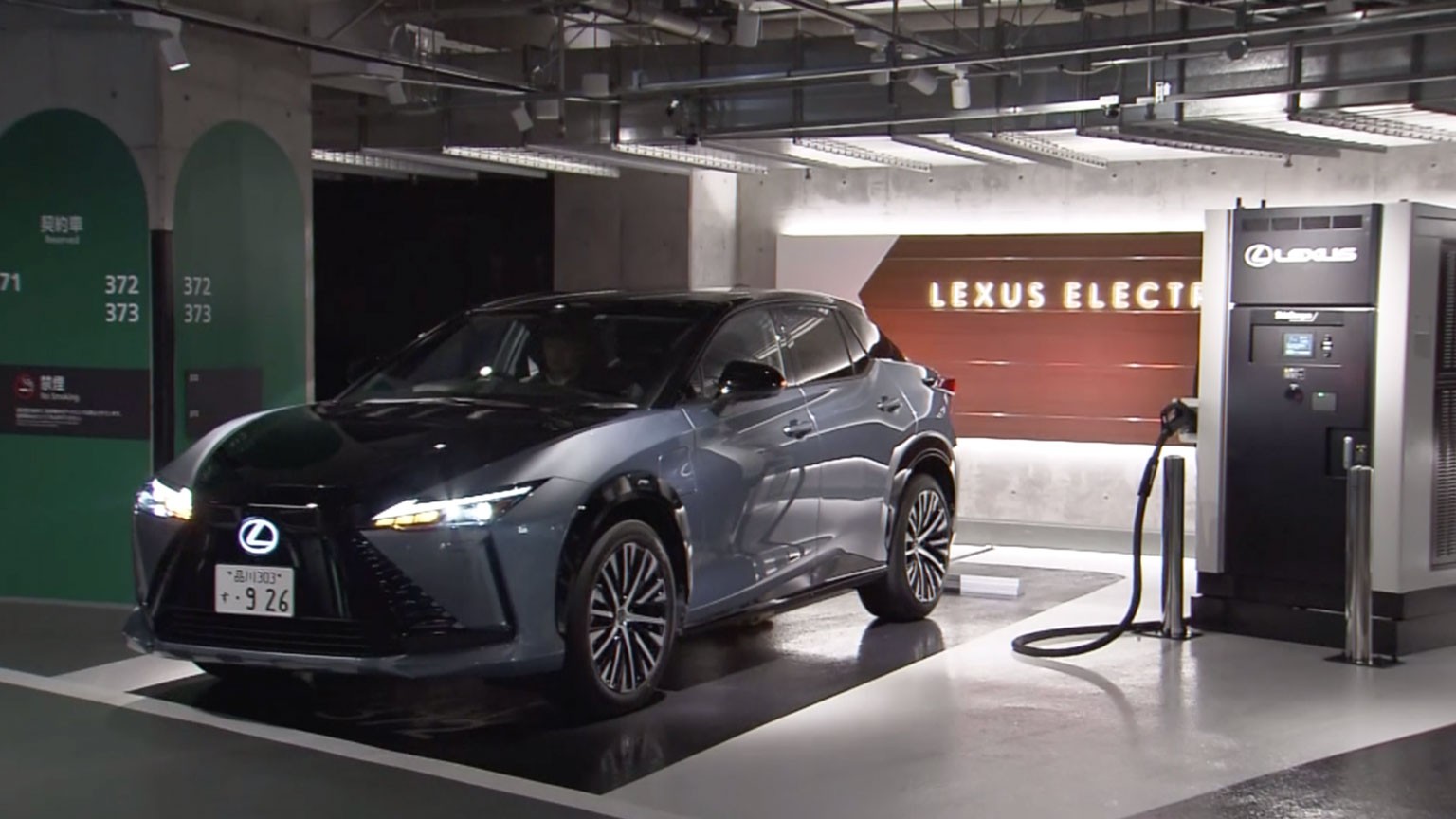Electric vehicles accounted for about 4% of global auto sales in 2020, but the figure has since more than tripled to 14%. Of the more than 10 million EVs sold in 2022, less than 60,000 were in Japan. Domestically, that's a measly 2% share of the market.
Lexus aims to produce an entirely battery-powered lineup by 2035, and officials know they must drastically increase the appeal of battery-powered cars in the meantime.
The company recently rolled out a program exclusively for EV buyers. A so-called supercharging station that takes just minutes instead of hours has been installed in the basement of Tokyo Midtown Hibiya, a high-end commercial complex in the heart of the capital.

Convenience is key. Drivers can reserve a spot via an app, so they don't have to wait in line. The app also stores credit card information, making payment a breeze.
But that's not all. The service includes a Lexus café, where drivers can enjoy free beverages and sweets while they wait for their cars to charge. There are also vouchers for discounted massages. Lexus plans to build 100 supercharging stations across Japan by 2030.

A chicken and egg dilemma
Industry expert Goishihara Taiji from Deloitte Tohmatsu Consulting says the lack of EV infrastructure in Japan is a chicken and egg situation.
Although the government provides subsidies for EV infrastructure, few charging stations exist because there is such a small number of EVs on the road. Operators that did invest have made a loss, and stopped building more.
Because the stations are scarce, many drivers have second thoughts about buying an EV, Goishihara explains.
US and China charge ahead
In the United States, EV leader Tesla has supercharging stations across the country. Within 15 minutes they can recharge vehicles to cover a range of up to 320 kilometers.

Goishihara says Tesla was able to build the infrastructure despite not being profitable for a long time because there were many venture capital investors who bet on the company's long-term success.
As for China, he says the government has played a pivotal role through subsidies to install, operate and maintain charging stations.
Tesla, BYD dominate
According to Goishihara, that's why Tesla and Chinese automaker BYD are dominating the market.
Lack of funding for conventional carmakers to invest in EV manufacturing is why many marques, including those in Japan, are struggling to make inroads.

Outlook for Japan
Goishihara sees EV sales in Japan increasing, as Japanese carmakers plan to introduce more models under the pressure of carbon neutral initiatives. But he expects the speed of penetration will remain slower than in other regions, including China, Europe and North America.
People who live in city apartments find it difficult to accommodate a charger at home ― and those in rural areas worry charging stations are few and far between.

